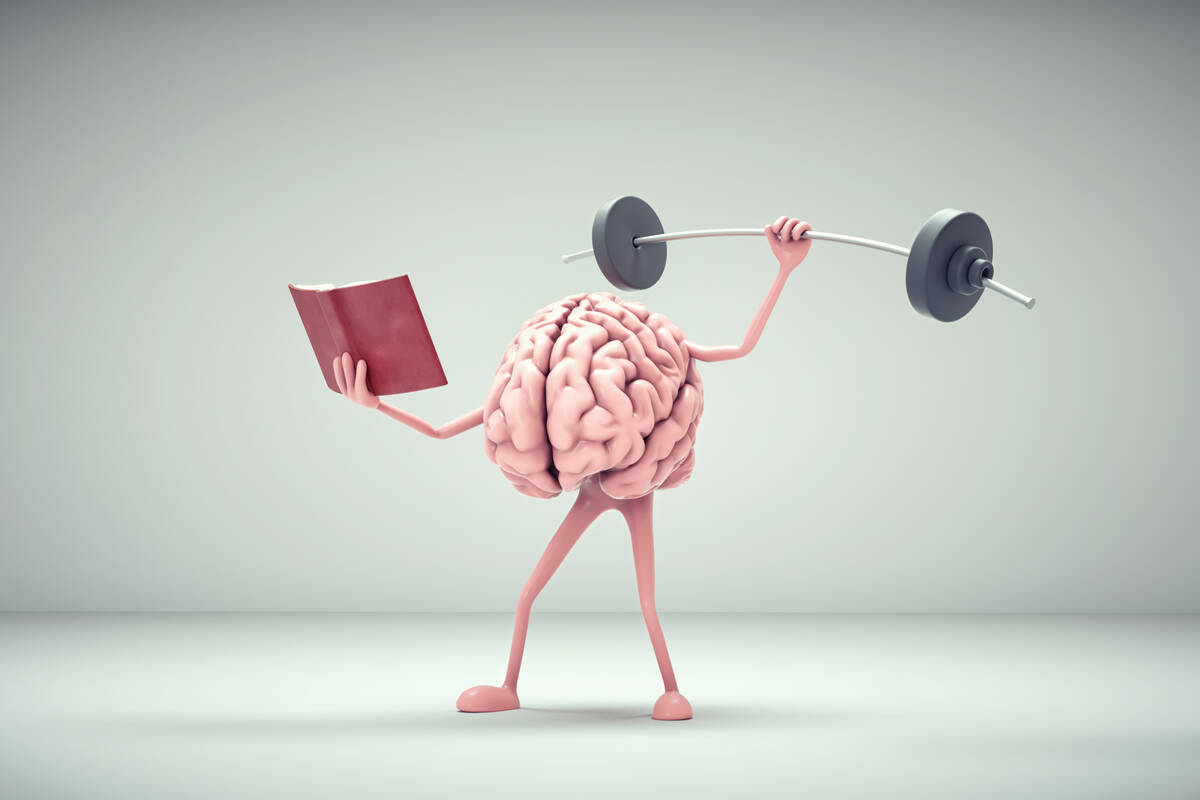Tips to stay mentally sharp in a distracted world
Are you struggling to stay focused in an age of pings, notifications and multitasking? The digital revolution has brought convenience but eroded our attention spans, leaving many people struggling to stay sharp.
Mental fitness is emerging as a popular addition to workout regimens, helping people maintain their focus in an increasingly distracted world, and there are many good reasons for it.
Exercising your brain is about actively building resilience against distractions and nurturing the brain’s capacity for focus, creativity and problem-solving. Physical fitness enhances endurance and strength but also creates neural pathways that improve concentration and clarity.
Digital-age distractions can reduce productivity, cause mental fatigue and trigger burnout. Addressing these challenges requires deliberate action.
Science of distraction
Our brains desire constant change, a powerful trait that helps humans thrive. In a fast-paced information age, this instinct can help us rise above distractions and embrace our brain’s abilities. However, whenever we switch tasks — checking a notification or responding to an email — we use “task switching,” which drains mental energy and diminishes efficiency.
Distractions can impair cognitive control by limiting the brain’s ability to manage focus and decision-making, leading to impulse decisions and emotional reactions. The good news is that mental skills are strengthened through practice, just like training muscles at the gym.
Long-term benefits
Investing time in exercising your brain has long-term benefits. Contributing time to exercise the brain enhances memory, focus and overall cognitive resilience as you age.
Cognitive aging
Mental fitness practices are essential for combating age-related cognitive decline. Activities that challenge the brain, such as learning new languages or playing musical instruments, build cognitive reserves that can delay conditions such as Alzheimer’s disease.
Preventative care
Just as physical exercise prevents chronic diseases, mental fitness reduces the risk of mental health disorders. For instance, mindfulness has been shown to lower the risk of depression and anxiety.
Emotional resilience
Mental fitness strengthens emotional regulation, which helps navigate stress and adapt to life’s challenges effectively. Over time, this resilience fosters greater life satisfaction and well-being.
Impact on society
Individuals who prioritize mental fitness are more focused and resilient. Because of their higher emotional intelligence, they are better able to contribute to productive workplaces, harmonious relationships and healthier communities.
Building mental fitness
Incorporating mental fitness does not require significant lifestyle changes or time commitment. Small, consistent habits can significantly affect brain health and longevity.
Practice mindfulness
Mindfulness meditation has gained popularity over the last decade. A study by ScienceDirect shows that, in as little as eight weeks, practicing mindfulness for less than 15 minutes daily can improve attention, working memory and recognition memory.
There are many techniques for practicing mindfulness. Some of the most popular include deep breathing or body scanning, which can calm the mind, enhance self-awareness and help one be present. Others enjoy gratitude journaling to bring optimism and awareness to their lives.
Digital minimalism
Limiting screen time can reduce cognitive overload. Start by turning off non-essential notifications and designating tech-free hours. Smartphones have many tools for blocking distracting websites and setting time limits.
Single-tasking
Contrary to popular belief, multitasking reduces efficiency and increases errors. Focusing on one task at a time can improve productivity and satisfaction. The Pomodoro technique involves working in 25-minute focused intervals followed by short breaks as an effective way to stay engaged.
Stimulate your brain
Cognitive exercises such as puzzles, memory games and learning new skills challenge the brain and promote mental fitness. Reading, taking up a musical instrument, spending time solving puzzles, mastering a new language or even brushing with your non-dominant hand can enhance the brain’s function.
Prioritize nutrition
What you eat directly impacts brain function. Foods rich in omega-3 fatty acids, such as flaxseed and walnuts, support cognitive health, while antioxidants in berries help protect brain cells. Add whole grains, leafy greens and hydration to boost brain health.
Physical activity
Physical exercise increases blood flow to the brain, promoting better memory and focus. Activities such as yoga combine physical movement with mindfulness, providing a dual benefit. In addition, regular aerobic exercise can reduce the risk of cognitive decline.
Invest in sleep
Reaching deep sleep is essential for memory consolidation and emotional regulation. Yet, many sacrifices rest to meet the demands of busy schedules. Aim for seven to nine hours of quality sleep each night and establish a consistent bedtime routine. Reducing screen time before bed can improve sleep quality.


















